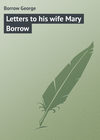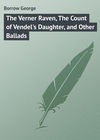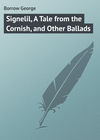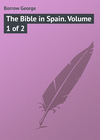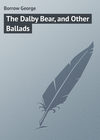Buch lesen: «Wild Wales: The People, Language, & Scenery», Seite 44
CHAPTER XCVIII
Departure from Llandovery – A Bitter Methodist – North and South – The Caravan – Captain Bosvile – Deputy Ranger – A Scrimmage – The Heavenly Gwynfa – Dangerous Position.
On the tenth I departed from Llandovery, which I have no hesitation in saying is about the pleasantest little town in which I have halted in the course of my wanderings. I intended to sleep at Gutter Vawr, a place some twenty miles distant, just within Glamorganshire, to reach which it would be necessary to pass over part of a range of wild hills, generally called the Black Mountains. I started at about ten o’clock; the morning was lowering, and there were occasional showers of rain and hail. I passed by Rees Pritchard’s church, holding my hat in my hand as I did so, not out of respect for the building, but from reverence for the memory of the sainted man who of old from its pulpit called sinners to repentance, and whose remains slumber in the churchyard unless washed away by some frantic burst of the neighbouring Towey. Crossing a bridge over the Bran just before it enters the greater stream, I proceeded along a road running nearly south and having a range of fine hills on the east. Presently violent gusts of wind came on, which tore the sear leaves by thousands from the trees of which there were plenty by the roadsides. After a little time, however, this elemental hurly-burly passed away, a rainbow made its appearance and the day became comparatively fine. Turning to the south-east under a hill covered with oaks, I left the vale of the Towey behind me, and soon caught a glimpse of some very lofty hills which I supposed to be the Black Mountains. It was a mere glimpse, for scarcely had I descried them when mist settled down and totally obscured them from my view.
In about an hour I reached Llangadog, a large village. The name signifies the Church of Gadog. Gadog was a British saint of the fifth century, who after labouring amongst his own countrymen for their spiritual good for many years, crossed the sea to Brittany, where he died. Scarcely had I entered Llangadog when a great shower of rain came down. Seeing an ancient-looking hostelry I at once made for it. In a large and comfortable kitchen I found a middle-aged woman seated by a huge deal table near a blazing fire, with a couple of large books open before her. Sitting down on a chair I told her in English to bring me a pint of ale. She did so and again sat down to her books, which on inquiry I found to be a Welsh Bible and Concordance. We soon got into discourse about religion, but did not exactly agree, for she was a bitter Methodist, as bitter as her beer, only half of which I could get down.
Leaving Llangadog I pushed forward. The day was now tolerably fine. In two or three hours I came to a glen, the sides of which were beautifully wooded. On my left was a river, which came roaring down from a range of lofty mountains right before me to the southeast. The river, as I was told by a lad, was the Sawdde or Southey, the lofty range the Black Mountains. Passed a pretty village on my right standing something in the shape of a semi-circle, and in about half-an-hour came to a bridge over a river which I supposed to be the Sawdde which I had already seen, but which I subsequently learned was an altogether different stream. It was running from the south, a wild fierce flood amidst rocks and stones, the waves all roaring and foaming.
After some time I reached another bridge near the foot of a very lofty ascent. On my left to the east upon a bank was a small house, on one side of which was a wheel turned round by a flush of water running in a little artificial canal; close by it were two small cascades, the waters of which and also those of the canal passed under the bridge in the direction of the west. Seeing a decent-looking man engaged in sawing a piece of wood by the roadside, I asked him in Welsh whether the house with the wheel was a flour-mill.
“Nage,” said he, “it is a pandy, fulling mill.”
“Can you tell me the name of a river,” said I, “which I have left about a mile behind me? Is it the Sawdde?”
“Nage,” said he. “It is the Lleidach.”
Then looking at me with great curiosity he asked me if I came from the north country.
“Yes,” said I, “I certainly come from there.”
“I am glad to hear it,” said he, “for I have long wished to see a man from the north country.”
“Did you never see one before?” said I.
“Never in my life,” he replied: “men from the north country seldom show themselves in these parts.”
“Well,” said I; “I am not ashamed to say that I come from the north.”
“Ain’t you? Well, I don’t know that you have any particular reason to be ashamed, for it is rather your misfortune than your fault; but the idea of any one coming from the north – ho, ho!”
“Perhaps in the north,” said I, “they laugh at a man from the south.”
“Laugh at a man from the south! No, no; they can’t do that.”
“Why not?” said I; “why shouldn’t the north laugh at the south as well as the south at the north?”
“Why shouldn’t it? why, you talk like a fool. How could the north laugh at the south as long as the south remains the south and the north the north? Laugh at the south! you talk like a fool, David, and if you go on in that way I shall be angry with you. However, I’ll excuse you; you are from the north, and what can one expect from the north but nonsense? Now tell me, do you of the north eat and drink like other people? What do you live upon?”
“Why, as for myself,” said I, “I generally live on the best I can get.”
“Let’s hear what you eat; bacon and eggs?”
“O yes! I eat bacon and eggs when I can get nothing better.”
“And what do you drink? Can you drink ale?”
“O yes,” said I; “I am very fond of ale when it’s good. Perhaps you will stand a pint?”
“H’m,” said the man looking somewhat blank; “there is no ale in the Pandy and there is no public-house near at hand, otherwise – . Where are you going to-night?”
“To Gutter Vawr.”
“Well, then, you had better not loiter. Gutter Vawr is a long way off over the mountain. It will be dark, I am afraid, long before you get to Gutter Vawr. Good evening, David! I am glad to have seen you, for I have long wished to see a man from the north country. Good evening! you will find plenty of good ale at Gutter Vawr!”
I went on my way. The road led in a south-eastern direction gradually upward to very lofty regions. After walking about half-an-hour I saw a kind of wooden house on wheels drawn by two horses coming down the hill towards me. A short black-looking fellow in brown top boots, corduroy breeches, jockey coat and jockey cap sat on the box, holding the reins in one hand and a long whip in the other. Beside him was a swarthy woman in a wild flaunting dress. Behind the box out of the fore part of the caravan peered two or three children’s black heads. A pretty little foal about four months old came frisking and gambolling now before now beside the horses, whilst a colt of some sixteen months followed more leisurely behind. When the caravan was about ten yards distant I stopped, and, raising my left hand with the little finger pointed aloft, I exclaimed:
“Shoon, Kaulomengro, shoon! In Dibbel’s nav, where may tu be jawing to?”
Stopping his caravan with considerable difficulty the small black man glared at me for a moment like a wild cat, and then said in a voice partly snappish, partly kind:
“Savo shan tu? Are you one of the Ingrines?”
“I am the chap what certain folks calls the Romany Rye.”
“Well, I’ll be jiggered if I wasn’t thinking so and if I wasn’t penning so to my juwa as we were welling down the chong.”
“It is a long time since we last met, Captain Bosvile, for I suppose I may call you Captain now?”
“Yes! the old man has been dead and buried this many a year, and his sticks and titles are now mine. Poor soul, I hope he is happy; indeed I know he is, for he lies in Cockleshell churchyard, the place he was always so fond of, and has his Sunday waistcoat on him with the fine gold buttons, which he was always so proud of. Ah, you may well call it a long time since we met – why, it can’t be less than thirty year.”
“Something about that – you were a boy then of about fifteen.”
“So I was, and you a tall young slip of about twenty; well, how did you come to jin mande?”
“Why, I knew you by your fighting mug – there an’t such another mug in England.”
“No more there an’t – my old father always used to say it was of no use hitting it for it always broke his knuckles. Well, it was kind of you to jin mande after so many years. The last time I think I saw you was near Brummagem, when you were travelling about with Jasper Petulengro and – I say, what’s become of the young woman you used to keep company with?”
“I don’t know.”
“You don’t? Well, she was a fine young woman and a vartuous. I remember her knocking down and giving a black eye to my old mother, who was wonderfully deep in Romany, for making a bit of a gillie about you and she. What was the song? Lord, how my memory fails me. O, here it is: —
“Ando berkho Rye canó
Oteh pivò teh khavó. —
Tu lerasque ando berkho piranee
Teh corbatcha por pico.”
“Have you seen Jasper Petulengro lately?” said I.
“Yes, I have seen him, but it was at a very considerable distance. Jasper Petulengro doesn’t come near the likes of we now. Lord! you can’t think what grand folks he and his wife have become of late years, and all along of a trumpery lil which some body has written about them. Why, they are hand and glove with the Queen and Prince, and folks say that his wife is going to be made dame of honour, and Jasper Justice of the Peace and Deputy Ranger of Windsor Park.”
“Only think,” said I. “And now tell me, what brought you into Wales?”
“What brought me into Wales? I’ll tell you; my own fool’s head. I was doing nicely in the Kaulo Gav and the neighbourhood, when I must needs pack up and come into these parts with bag and baggage, wife and childer. I thought that Wales was what it was some thirty years agone when our foky used to say – for I was never here before – that there was something to be done in it; but I was never more mistaken in my life. The country is overrun with Hindity mescrey, woild Irish, with whom the Romany foky stand no chance. The fellows underwork me at tinkering, and the women outscream my wife at telling fortunes – moreover, they say the country is theirs and not intended for niggers like we, and as they are generally in vast numbers what can a poor little Roman family do but flee away before them? a pretty journey I have made into Wales. Had I not contrived to pass off a poggado bav engro – a broken-winded horse – at a fair, I at this moment should be without a tringoruschee piece in my pocket. I am now making the best of my way back to Brummagem, and if ever I come again to this Hindity country may Calcraft nash me.”
“I wonder you didn’t try to serve some of the Irish out,” said I.
“I served one out, brother; and my wife and childer helped to wipe off a little of the score. We had stopped on a nice green, near a village over the hills in Glamorganshire, when up comes a Hindity family, and bids us take ourselves off. Now it so happened that there was but one man and a woman and some childer, so I laughed, and told them to drive us off. Well, brother, without many words, there was a regular scrimmage. The Hindity mush came at me, the Hindity mushi at my juwa, and the Hindity chaves at my chai. It didn’t last long, brother. In less than three minutes I had hit the Hindity mush, who was a plaguey big fellow, but couldn’t fight, just under the point of the chin, and sent him to the ground with all his senses gone. My juwa had almost scratched an eye out of the Hindity mushi, and my chai had sent the Hindity childer scampering over the green. ‘Who has got to quit now?’ said I to the Hindity mush after he had got on his legs, looking like a man who has been cut down after hanging just a minute and a half. ‘Who has got notice to quit now, I wonder?’ Well, brother, he didn’t say anything, nor did any of them, but after a little time they all took themselves off, with a cart they had, to the south. Just as they got to the edge of the green, however, they turned round and gave a yell which made all our blood cold. I knew what it meant, and said, ‘This is no place for us.’ So we got everything together and came away, and, though the horses were tired, never stopped till we had got ten miles from the place; and well it was we acted as we did, for, had we stayed, I have no doubt that a whole Hindity clan would have been down upon us before morning and cut our throats.”
“Well,” said I, “farewell. I can’t stay any longer. As it is, I shall be late at Gutter Vawr.”
“Farewell, brother!” said Captain Bosvile; and, giving a cry, he cracked his whip and set his horses in motion.
“Won’t you give us sixpence to drink?” cried Mrs. Bosvile, with a rather, shrill voice.
“Hold your tongue, you she-dog,” said Captain Bosvile. “Is that the way in which you take leave of an old friend? Hold your tongue, and let the Ingrine gentleman jaw on his way.”
I proceeded on my way as fast as I could, for the day was now closing in. My progress, however, was not very great; for the road was steep, and was continually becoming more so. In about half-an-hour I came to a little village, consisting of three or four houses; one of them, at the door of which several carts were standing, bore the sign of a tavern.
“What is the name of this place?” said I to a man who was breaking stones on the road.
“Capel Gwynfa,” said he.
Rather surprised at the name, which signifies in English the Chapel of the place of bliss, I asked the man why it was called so.
“I don’t know,” said the man.
“Was there ever a chapel here?” said I.
“I don’t know, sir; there is none now.”
“I dare say there was in the old time,” said I to myself, as I went on, “in which some holy hermit prayed and told his beads, and occasionally received benighted strangers. What a poetical word that Gwynfa, place of bliss, is. Owen Pugh uses it in his translation of Paradise Lost to express Paradise, for he has rendered the words Paradise Lost by Coll Gwynfa – the loss of the place of bliss. I wonder whether the old scholar picked up the word here. Not unlikely. Strange fellow that Owen Pugh. Wish I had seen him. No hope of seeing him now, except in the heavenly Gwynfa. Wonder whether there is such a place. Tom Payne thinks there’s not. Strange fellow that Tom Payne. Norfolk man. Wish I had never read him.”
Presently I came to a little cottage with a toll-bar. Seeing a woman standing at the door, I inquired of her the name of the gate.
“Cowslip Gate, sir.”
“Has it any Welsh name?”
“None that I know of, sir.”
This place was at a considerable altitude, and commanded an extensive view to the south, west, and north. Heights upon heights rose behind it to the east. From here the road ran to the south for a little way nearly level, then turned abruptly to the east, and was more steep than ever. After the turn, I had a huge chalk cliff towering over me on the right, and a chalk precipice on my left. Night was now coming on fast, and, rather to my uneasiness, masses of mist began to pour down the sides of the mountain. I hurried on, the road making frequent turnings. Presently the mist swept down upon me, and was so thick that I could only see a few yards before me. I was now obliged to slacken my pace, and to advance with some degree of caution. I moved on in this way for some time, when suddenly I heard a noise, as if a number of carts were coming rapidly down the hill. I stopped, and stood with my back close against the high bank. The noise drew nearer, and in a minute I saw indistinctly through the mist, horses, carts, and forms of men passing. In one or two cases the wheels appeared to be within a few inches of my feet. I let the train go by, and then cried out in English, “Am I right for Gutter Vawr?”
“Hey?” said a voice, after a momentary interval.
“Am I right for Gutter Vawr?” I shouted yet louder.
“Yes, sure!” said a voice, probably the same.
Then instantly a much rougher voice cried, “Who the Devil are you?”
I made no answer, but went on, whilst the train continued its way rumbling down the mountain. At length I gained the top, where the road turned and led down a steep descent towards the south-west. It was now quite night, and the mist was of the thickest kind. I could just see that there was a frightful precipice on my left, so I kept to the right, hugging the side of the hill. As I descended I heard every now and then loud noises in the vale probably proceeding from stone quarries. I was drenched to the skin, nay, through the skin, by the mist, which I verily believe was more penetrating than that described by Ab Gwilym. When I had proceeded about a mile I saw blazes down below, resembling those of furnaces, and soon after came to the foot of the hill. It was here pouring with rain, but I did not put up my umbrella as it was impossible for me to be more drenched than I was. Crossing a bridge over a kind of torrent, I found myself amongst some houses. I entered one of them from which a blaze of light and a roar of voices proceeded, and, on inquiring of an old woman who confronted me in the passage, I found that I had reached my much needed haven of rest, the tavern of Gutter Vawr in the county of Glamorgan.
CHAPTER XCIX
Inn at Gutter Vawr – The Hurly-burly – Bara y Caws – Change of Manner – Welsh Mistrust – Wonders of Russia – The Emperor – The grand Ghost Story.
The old woman who confronted me in the passage of the inn turned out to be the landlady. On learning that I intended to pass the night at her house, she conducted me into a small room on the right-hand side of the passage, which proved to be the parlour. It was cold and comfortless, for there was no fire in the grate. She told me, however, that one should be lighted, and going out presently returned with a couple of buxom wenches, who I soon found were her daughters. The good lady had little or no English; the girls, however, had plenty, and of a good kind too. They soon lighted a fire and then the mother inquired if I wished for any supper.
“Certainly,” said I, “for I have not eaten anything since I left Llandovery. What can I have?”
“We have veal and bacon,” said she.
“That will do,” said I; “fry me some veal and bacon, and I shan’t complain. But pray tell me what prodigious noise is that which I hear on the other side of the passage?”
“It is only the miners and the carters in the kitchen making merry,” said one of the girls.
“Is there a good fire there?” said I.
“O yes,” said the girl, “we have always a good fire in the kitchen.”
“Well then,” said I, “I shall go there till supper is ready, for I am wet to the skin, and this fire casts very little heat.”
“You will find them a rough set in the kitchen,” said the girl.
“I don’t care if I do,” said I; “when people are rough I am civil, and I have always found that civility beats roughness in the long run.” Then going out I crossed the passage and entered the kitchen.
It was nearly filled with rough, unkempt fellows smoking, drinking, whistling, singing, shouting or jabbering, some in a standing, some in a sitting posture. My entrance seemed at once to bring everything to a dead stop; the smokers ceased to smoke, the hand that was conveying the glass or the mug to the mouth was arrested in air, the hurly-burly ceased and every eye was turned upon me with a strange inquiring stare. Without allowing myself to be disconcerted I advanced to the fire, spread out my hands before it for a minute, gave two or three deep ahs of comfort, and then turning round said: “Rather a damp night, gentlemen – fire cheering to one who has come the whole way from Llandovery – Taking a bit of a walk in Wales, to see the scenery and to observe the manners and customs of the inhabitants – Fine country, gentlemen, noble prospects, hill and dale – Fine people too – open-hearted and generous; no wonder! descendants of the Ancient Britons – Hope I don’t intrude – other room rather cold and smoking – If I do will retire at once – don’t wish to interrupt any gentlemen in their avocations or deliberations – scorn to do anything ungenteel or calculated to give offence – hope I know how to behave myself – ought to do so – learnt grammar at the High School at Edinburgh.”
“Offence, intrusion!” cried twenty voices. “God bless your honour! no intrusion and no offence at all – sit down – sit here – won’t you drink?”
“Please to sit here, sir,” said an old grimy-looking man, getting up from a seat in the chimney-corner – “this is no seat for me whilst you are here, it belongs to you – sit down in it,” and laying hold of me he compelled me to sit down in the chair of dignity, whilst half-a-dozen hands pushed mugs of beer towards my face; these, however, I declined to partake of on the very satisfactory ground that I had not taken supper, and that it was a bad thing to drink before eating, more especially after coming out of a mist.
“Have you any news to tell of the war, sir?” said a large rough fellow, who was smoking a pipe.
“The last news that I heard of the war,” said I, “was that the snow was two feet deep at Sebastopol.”
“I heard three,” said the man; “however, if there be but two it must be bad work for the poor soldiers. I suppose you think that we shall beat the Russians in the end.”
“No, I don’t,” said I; “the Russians are a young nation and we are an old; they are coming on and we are going off; every dog has its day.”
“That’s true,” said the man, “but I am sorry that you think we shall not beat the Russians, for the Russians are a bad set.”
“Can you speak Welsh?” said a darkish man with black bristly hair and a small inquisitive eye.
“O, I know two words in Welsh,” said I, “bara y caws.”
“That’s bread and cheese,” said the man, then turning to a neighbour of his he said in Welsh: “He knows nothing of Cumraeg, only two words; we may say anything we please; he can’t understand us. What a long nose he has!”
“Mind that he an’t nosing us,” said his neighbour. “I should be loth to wager that he doesn’t understand Welsh; and after all he didn’t say that he did not, but got off by saying he understood those two words.”
“No, he doesn’t understand Welsh,” said the other; “no Sais understands Welsh, and this is a Sais. Now with regard to that piece of job-work which you and I undertook.” And forthwith he and the other entered into a disquisition about the job-work.
The company soon got into its old train, drinking and smoking and making a most terrific hullabaloo. Nobody took any farther notice of me. I sat snug in the chimney-corner, trying to dry my wet things, and as the heat was very great partially succeeded. In about half-an-hour one of the girls came to tell me that my supper was ready, whereupon I got up and said: “Gentlemen, I thank you for your civility; I am now going to supper; perhaps before I turn in for the night I may look in upon you again.” Then without waiting for an answer I left the kitchen and went into the other room, where I found a large dish of veal cutlets and fried bacon awaiting me, and also a smoking bowl of potatoes. Ordering a jug of ale I sat down, and what with hunger and the goodness of the fare, for everything was first-rate, made one of the best suppers I ever made in my life.
Supper over, I called for a glass of whiskey-and-water, over which I trifled for about half-an-hour and then betook myself again to the kitchen. Almost as soon as I entered, the company, who seemed to be discussing some point, and were not making much hurly-burly, became silent and looked at me in a suspicious and uneasy manner. I advanced towards the fire. The old man who had occupied the seat in the chimney-corner and had resigned it to me, had again taken possession of it. As I drew near to the fire he looked upon the ground, and seemed by no means disposed to vacate the place of honour; after a few moments, however, he got up and offered me the seat with a slight motion of his hand and without saying a word. I did not decline it, but sat down, and the old gentleman took a chair near. Universal silence now prevailed; sullen looks were cast at me; and I saw clearly enough that I was not welcome. Frankness was now my only resource. “What’s the matter, gentlemen?” said I; “you are silent and don’t greet me kindly; have I given you any cause of offence?” No one uttered a word in reply for nearly a minute, when the old man said slowly and deliberately: “Why, sir, the long and short of it is this: we have got it into our heads that you understand every word of our discourse; now, do you or do you not?”
“Understand every word of your discourse,” said I; “I wish I did; I would give five pounds to understand every word of your discourse.”
“That’s a clever attempt to get off, sir,” said the old man, “but it won’t exactly do. Tell us whether you know more Welsh than bara y caws; or to speak more plainly, whether you understand a good deal of what we say.”
“Well,” said I, “I do understand more Welsh than bara y caws – I do understand a considerable part of a Welsh conversation – moreover, I can read Welsh, and have the life of Tom O’r Nant at my fingers’ ends.”
“Well, sir, that is speaking plain, and I will tell you plainly that we don’t like to have strangers among us who understand our discourse, more especially if they be gentlefolks.”
“That’s strange,” said I; “a Welshman or foreigner, gentle or simple, may go into a public-house in England, and nobody cares a straw whether he understands the discourse of the company or not.”
“That may be the custom in England,” said the old man; “but it is not so in Wales.”
“What have you got to conceal?” said I. “I suppose you are honest men.”
“I hope we are, sir,” said the old man; “but I must tell you, once for all, that we don’t like strangers to listen to our discourse.”
“Come,” said I, “I will not listen to your discourse, but you shall listen to mine. I have a wonderful deal to say if I once begin; I have been everywhere.”
“Well, sir,” said the old man, “if you have anything to tell us about where you have been and what you have seen we shall be glad to hear you.”
“Have you ever been in Russia?” shouted a voice, that of the large rough fellow who asked me the question about the Russian war.
“O yes, I have been in Russia,” said I.
“Well, what kind of a country is it?”
“Very different from this,” said I, “which is a little country up in a corner, full of hills and mountains; that is an immense country, extending from the Baltic Sea to the confines of China, almost as flat as a pancake, there not being a hill to be seen for nearly two thousand miles.”
“A very poor country, isn’t it, always covered with ice and snow?”
“O no; it is one of the richest countries in the world, producing all kinds of grain, with noble rivers intersecting it, and in some parts covered with stately forests. In the winter, which is rather long, there is a good deal of ice and snow, it is true, but in the summer the weather is warmer than here.”
“And are there any towns and cities in Russia, sir, as there are in Britain?” said the old man, who had resigned his seat in the chimney-corner to me; “I suppose not, or, if there be, nothing equal to Hereford or Bristol, in both of which I have been.”
“O yes,” said I, “there are plenty of towns and cities. The two principal ones are Moscow and Saint Petersburg, both of which are capitals. Moscow is a fine old city, far up the country, and was the original seat of empire. In it there is a wonderful building called the Kremlin, situated on a hill. It is partly palace, partly temple, and partly fortress. In one of its halls are I don’t know how many crowns, taken from various kings, whom the Russians have conquered. But the most remarkable thing in the Kremlin is a huge bell in a cellar or cave, close by one of the churches; it is twelve feet high, and the sound it gives when struck with an iron bar, for there are no clappers to Russian bells, is so loud that the common Russians say it can be heard over the empire. The other city, Saint Petersburg, where the court generally reside, is a modern and very fine city; so fine indeed, that I have no hesitation in saying that neither Bristol nor Hereford is worthy to be named in the same day with it. Many of the streets are miles in length and straight as an arrow. The Nefsky Prospect, as it is called, a street which runs from the grand square, where stands the Emperor’s palace, to the monastery of Saint Alexander Nefsky, is nearly three miles in length and is full of noble shops and houses. The Neva, a river twice as broad and twice as deep as the Thames, and whose waters are clear as crystal, runs through the town, having on each side of it a superb quay, fenced with granite, which affords one of the most delightful walks imaginable. If I had my choice of all the cities of the world to live in, I would chose Saint Petersburg.”
“And did you ever see the Emperor?” said the rough fellow, whom I have more than once mentioned, “did you ever see the Emperor Nicholas?”
“O yes; I have seen him frequently.”
“Well, what kind of a man is he? we should like to know.”
“A man of colossal stature, with a fine, noble, but rather stern and severe aspect. I think I now see him, with his grey cloak, cocked hat, and white waving plumes, striding down the Nefsky Prospect, and towering by a whole head over other people.”
“Bravo! Did you ever see him at the head of his soldiers?”
“O yes! I have seen the Emperor review forty thousand of his chosen troops in the Champs de Mars, and a famous sight it was. There stood the great, proud man looking at his warriors as they manœuvred before him. Two-thirds of them were cavalry, and each horseman was mounted on a beautiful blood charger of Cossack or English breed, and arrayed in a superb uniform. The blaze, glitter and glory were too much for my eyes, and I was frequently obliged to turn them away. The scene upon the whole put me in mind of an immense field of tulips of various dyes, for the colours of the dresses, of the banners and the plumes, were as gorgeous and manifold as the hues of those queenly flowers.”











